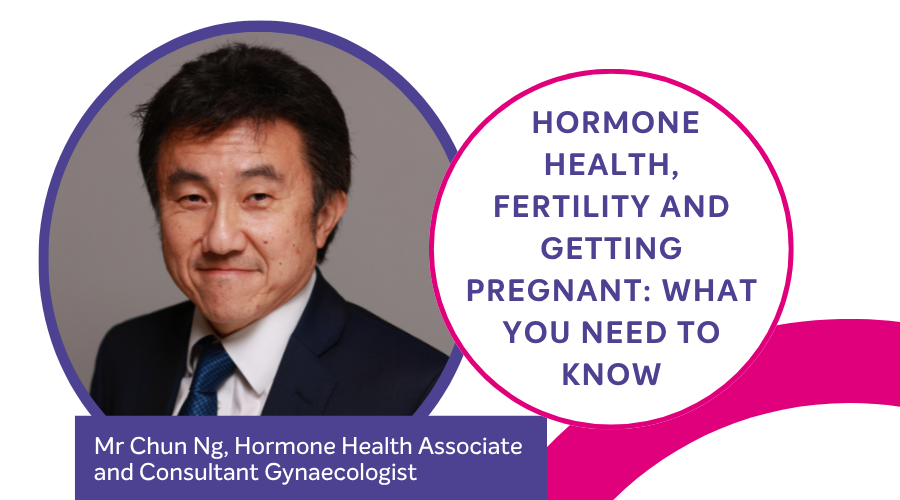Hormone Health, Fertility and Getting Pregnant: What You Need to Know

At Hormone Health, we’re proud to support National Fertility Awareness Week; raising awareness of the factors that influence fertility, from hormone balance to age and lifestyle, and helping individuals and couples better understand their reproductive health.
According to recent data from the Office for National Statistics (ONS) and the Human Fertilisation and Embryology Authority (HFEA), around 1 in 6 couples in the UK experience fertility difficulties – affecting approximately 3.5 million people – although 84% will conceive within a year of trying.
The total fertility rate in England and Wales fell to a record low of 1.41 children per woman in 2024, while IVF births now account for around 3% of all UK births, with more than 77,500 IVF cycles carried out in 2023.
Why Hormones Matter for Fertility
Hormones like the Follicle‑Stimulating Hormone (FSH) and Anti‑Müllerian Hormone (AMH), and those regulating your menstrual cycle are vital for conception.
Even if everything appears ‘normal’, hormone health is the foundation for fertility: you need regular ovulation, a receptive uterine lining, healthy sperm, and good implantation conditions – all of which are hormone-mediated.
Age and Fertility: Fact vs Fiction
Age affects fertility, but however beliefs are outdated. At birth, females have about 2 million eggs; by puberty / menarche, only 25% remain.
Around the age of 38 and above, fertility starts to decline.
Egg quality matters as much as quantity and naturally reduces with age.
Conditions like endometriosis or PCOS can affect quality, but many women still conceive naturally.
Key Tests
- FSH (days 2-3 of cycle): Raised levels may indicate declining egg reserve.
- AMH: Reflects egg quantity, not quality.
- Antral Follicle Count (AFC): Ultrasound check of developing follicles.
A less frequent or irregular cycle after years of regularity can be an early sign of declining ovarian reserve.
Common Misconceptions
- Fertility doesn’t suddenly collapse at 35; it declines gradually.
- A good AMH doesn’t guarantee egg quality.
- Regular periods don’t always mean normal fertility.
Supporting Fertility and Hormone Health
Here are practical, evidence-based steps you can take (while recognising each person’s individual situation will differ).
Always consult your doctor or fertility specialist for personalised advice.
- Track your cycle – note any changes in length or regularity.
- Get checked early – FSH & AMH blood tests and ultrasound scan for AFC can assess your reproductive reserve and function.
- Prioritise health – balanced diet, healthy weight, no smoking, and limit alcohol.
- Don’t delay – egg reserve and quality both decline with age; early assessment gives more options.
- Understand IVF – success rates are more favourable for women under 35, but no treatment is guaranteed.
Fertility is complex; hormones, age, and lifestyle all play a part. Understanding your hormonal health and seeking early advice can make a big difference to your fertility journey.
Sperm health, including count, motility, and morphology, also plays a key role in overall fertility outcomes.
If you’ve been trying for a year (or six months if over 35), talk to your GP about fertility testing and support.
Our Hormone Health associates are trained to help with assessment of your fertility potential/family planning issues.
If fertility treatment is required, we can refer you on to our partners at The Fertility Partnership (TFP).
Ready to Take the Next Step in Your Fertility Journey?
If you’re seeking expert, personalised fertility support, Dr Chun Ng, Consultant Gynaecologist and Specialist in Infertility, Reproductive Medicine, Surgery and Postmenopausal Health, is here to help.
Book a consultation today with Dr Ng to assess fertility, and explore the options that are right for you.